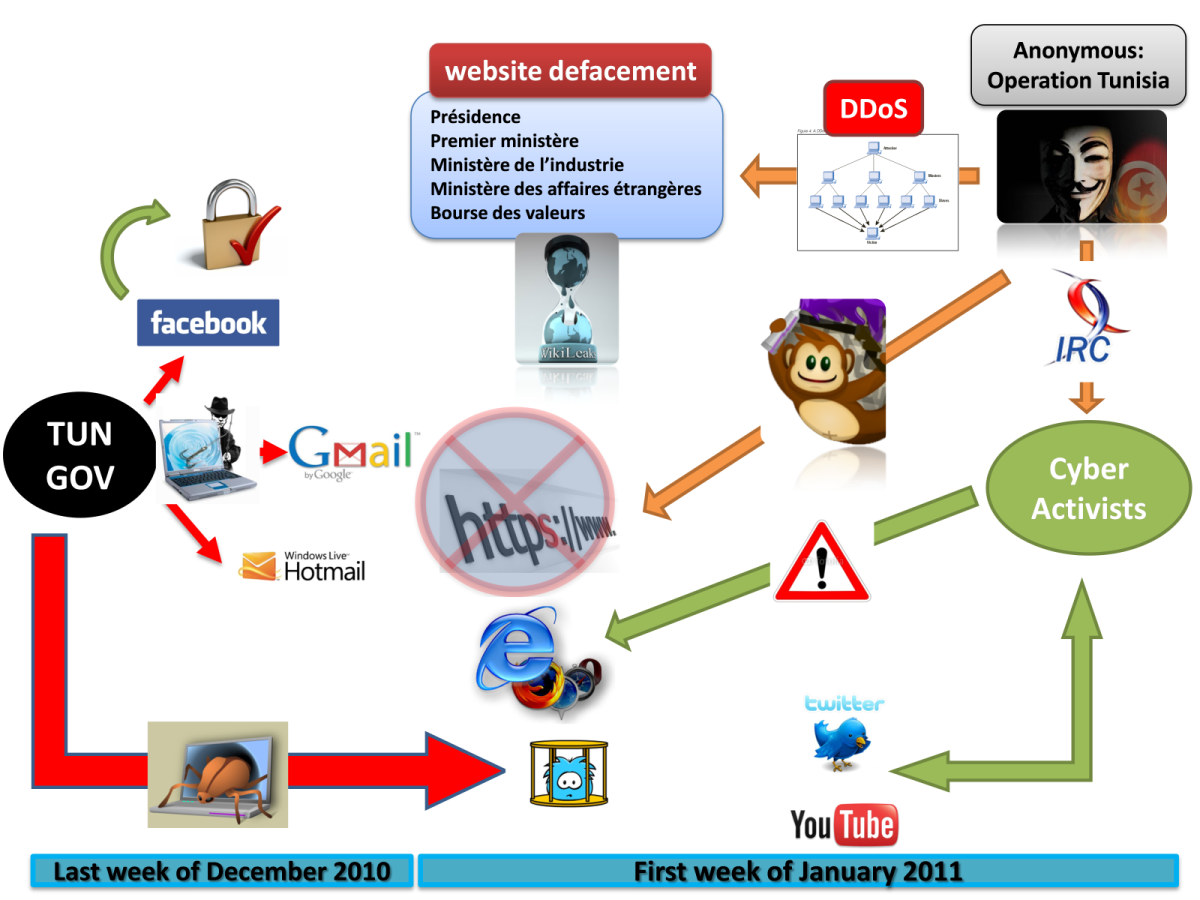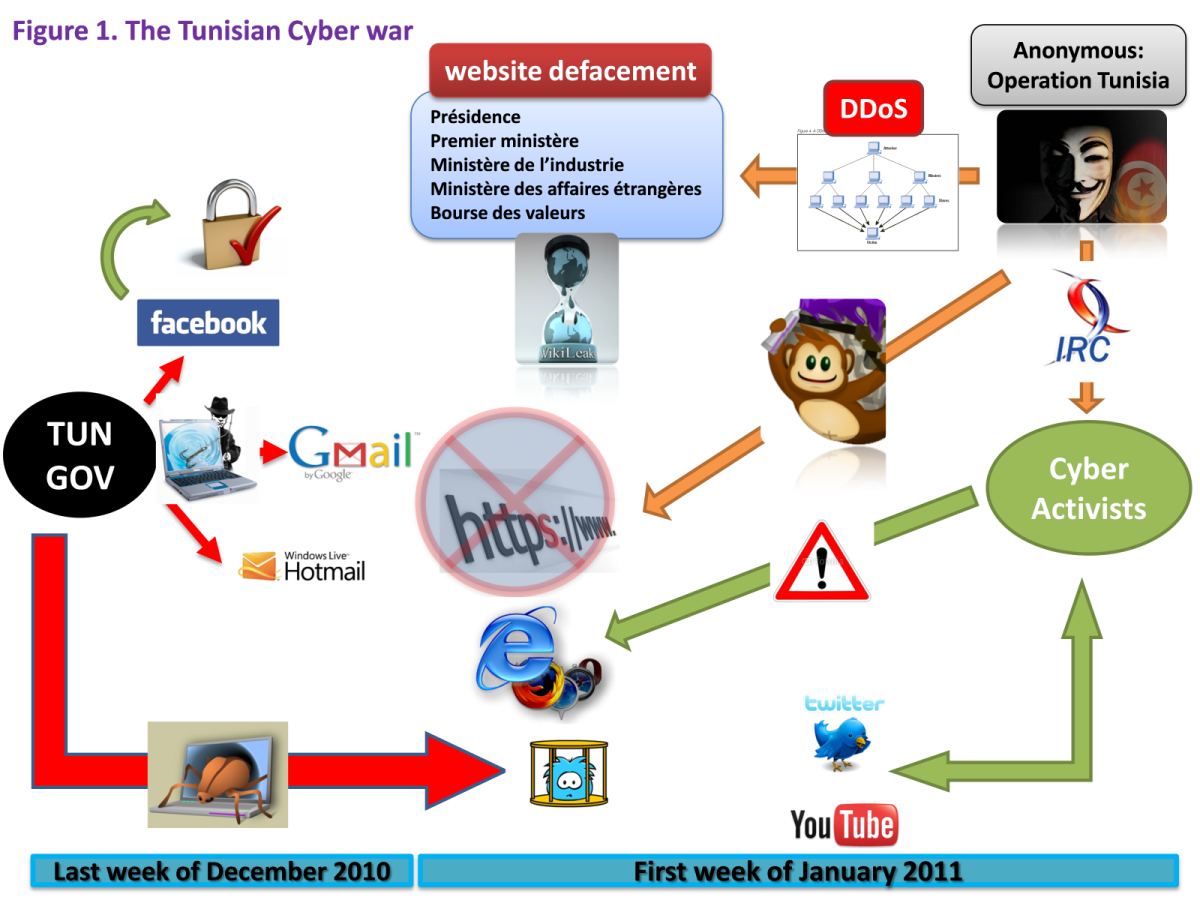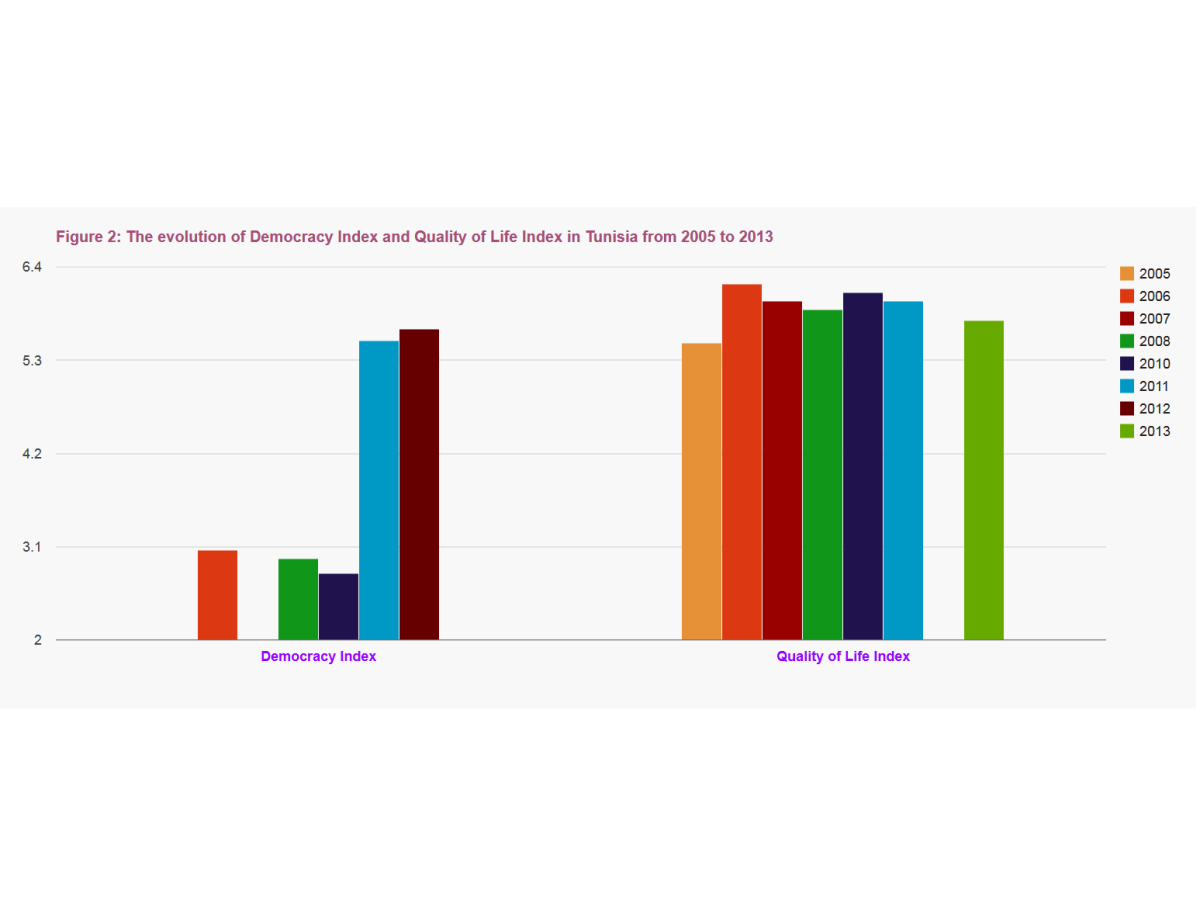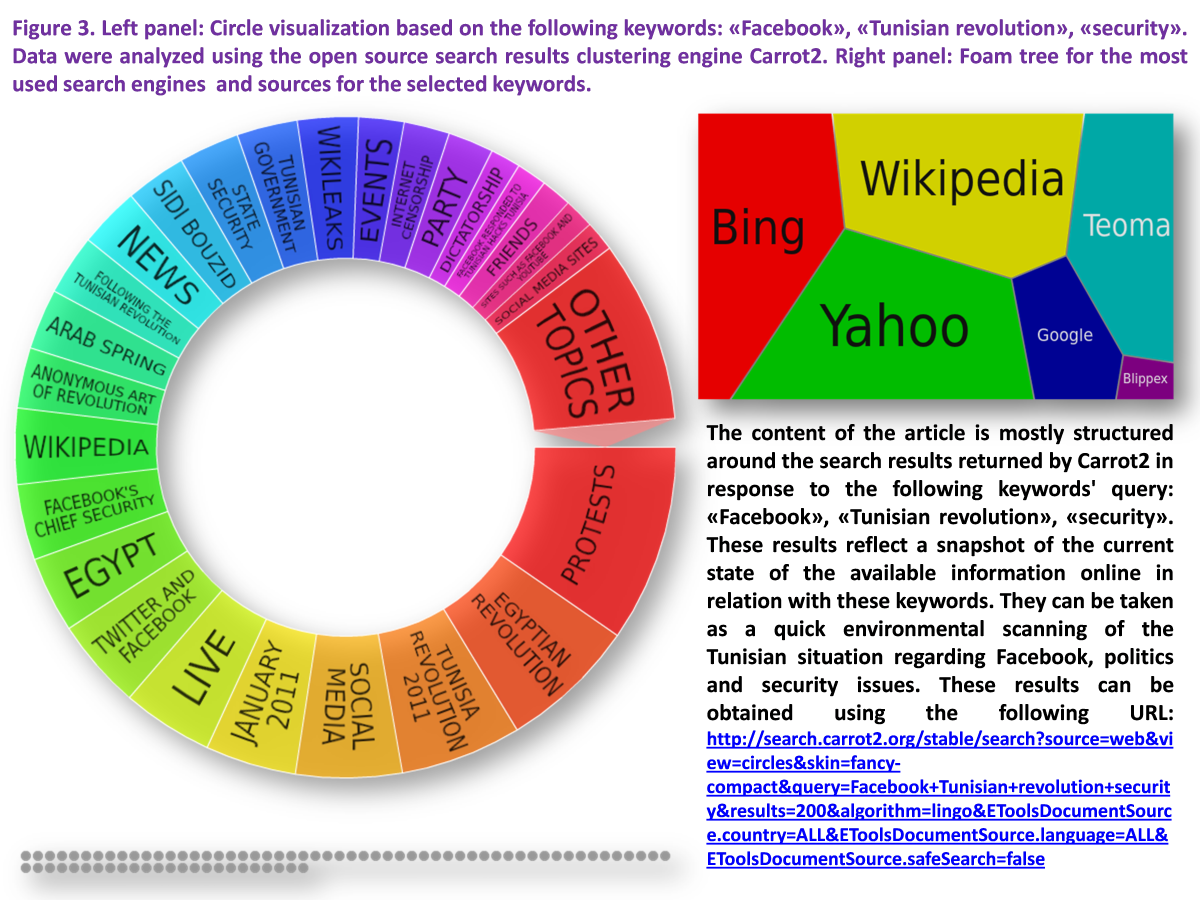Facebook and Public Empowerment in Tunisia
11 Dec 2013
By Yousri Marzouki for ISN
Tunisia was once classified an ‘enemy of the Internet’ by external pageReporters Without Borderscall_made . Early in 2011, however, Tunisia was moved to the list of 'countries under surveillance' following a series of little-noticed events in cyberspace. While the change seemed insignificant at first, it would turn out to be momentous. The Tunisian government’s external pageextensive use of the filtering softwarecall_made SmartFilter to shut down Dailymotion, Facebook, and YouTube would ring alarm bells around the world about the health of liberty and democracy in the country. In 2008, Facebook has been reinstated by former President Ben Ali in order to satisfy his family members who external pageserved as majority shareholderscall_made of the most important mobile phone service provider in the country. It was a decision that would come back to haunt him. Now, instead of the proposed ban, external pageFacebookcall_made would play a starring role in the biggest “boomerang effect” the country has ever known.
A Facebook revolution
As of 2012, Internet use and social media penetration were extensive in Tunisia. In a population of 10,732,900, 39% are Internet users and 31% are Facebook subscribers. This allowed social media platforms like Facebook to make a telling external pagecontribution to the 2011 revolutioncall_made, signaling the emergence of a new means of public empowerment through the Web. But while history will remember the sacrifice of the men and women who died leading the uprising, few are aware of the external pagewell-documentedcall_made cyber-battle between dissidents and the government that paved the way for the dramatic events in the streets. The diagram below summarizes the details of this battle, which occurred in the month before the regime fell on January 14, 2011.
As the diagram indicates, the conflict was effectively fought between two opposing forces. Government hackers broke into the Facebook and email accounts of active Tunisian bloggers to prevent them from spreading information about what was happening in Sidi Bouzid, the cradle of the revolution. Unexpectedly, the government was also able to remove the https secured protocol from major Internet browsers in order to expose any bloggers that dared to post anything online. As a result, some external pagebloggers were arrestedcall_made.
Next, external pageFacebook's Chief Security Officercall_madereported anecdotal incidents such as the removal of already posted comments on users' walls. Eventually, Facebook added an extra layer of security – aimed at preventing such intrusions by the government without publicly interfering with the ongoing turmoil in the country.
Ultimately, a series of counterattacks by cyber-dissidents – orchestrated by the hacker group external pageAnonymouscall_made and known as external pageOperation Tunisiacall_made – were pivotal in thwarting government efforts and in drawing the attention of the world toward developments in the country. First, Anonymous established contact with cyber-activists through an external pageunattended communication channelcall_made (IRC). They also bypassed the absence of the https protocol by providing users with an augmented browsing experience via the Mozilla external pageGreasemonkeycall_made plug-in to avoid proxy interception by the government. Finally, after a series of external pagedistributed denial-of-servicecall_made (DDoS) external pageattackscall_made, they defaced six government department websites, including the President’s homepage.
According to some analysts, this cyber-battle was the first in a number of ‘external pageFreedom Opscall_made’ that would take place that year. Because external pageOperation Tunisia was also in communication with WikiLeakscall_made, external pagethe latter was able to fuel the ongoing unrestcall_made by revealing to the world evidence of the abuses of the Ben Ali family. During the full media blackout that ensued, Tunisian citizens decided to get in on the act. The events were documented day-by-day, and even minute-by-minute, as the situation worsened and an increasing number of innocent people were killed. Demonstrators used their mobile phone cameras to film the police crackdowns that took place across the country. And it was all made possible by the only weapon these citizens had: external pageFacebookcall_made.
But to what end?
The success of the Tunisian uprising catalyzed by this fierce cyber battle was the first of its kind -- a milestone in the history of Web 2.0. But almost three years later, what impact has the ‘Facebook revolution’ had on democracy in Tunisia and the quality of life of the Tunisian people?
The Democracy Index (DI) compiled by the external pageEconomist Intelligence Unitcall_made (EIU) is an annual assessment of the health of democracy in countries around the world. The index reflects the freedom and fairness of national elections; the security of voting; the influence of foreign powers on government; and the capability of civil servants to implement policies. Using similar methods, the EIU also compiles an annual external pagequality of lifecall_made index, which aggregates material well-being (i.e. GDP per capita); life expectancy at birth; political stability and security; divorce rates; community life; climate and geography; job security; political freedom; and gender equality. Low scores and high scores on both scales correspond to low and high levels of democracy and quality of life, respectively.
The following diagram shows the evolution of Tunisia’s scores on these two indices betweenexternal page2005call_made and external page2013call_made. While there is a sharp increase in Tunisia’s democracy score in 2011, there was no corresponding increase in quality of life, despite the radical change in the political landscape. This begs the question: why has more democracy not resulted in the political reforms that could improve Tunisians’ lives?
The lack of change in Tunisia can largely be explained by the political polarization that set in a few months after the fall of the regime. Interestingly, Facebook seems to have played a role in this too – in conjunction with a phenomenon known as external pagepartisan selective exposurecall_made. external pageNatalie Stroudcall_made has shown how partisan selective exposure -- which explains why people gravitate toward media that confirms their own political convictions – leads to political polarization and vice versa. She has also shown that media associated with politically salient events can promote higher levels of this selective exposure. In post-revolutionary Tunisia, external pagepolarizationcall_made was highly visible in countless media outlets. The most dramatic demonstration of this came in February 2013 with the external pageTunisian Harlem Shakecall_made incident, where a Tunisian version external pageofcall_madethe popular meme spread virally on Youtube and Facebook, drawing passionate reactions from all sides, the government included.
Facebook’s efficacy in the Tunisian revolution proved that social networking platforms have a genuine capacity to make an impact on society. Nevertheless, the Tunisian case also shows how Facebook can contribute to polarization, security compromises, and information manipulation. Data from the external pageOpen data, Open Governmentcall_made project (a reliable repository for politicized Tunisian Facebook pages) indicates that the 40 most popular Facebook pages in the ‘Pro-revolution’ category have a total of 4,926,311 followers, or 45.8% of the population. While this would seem to reflect a large base of support for progressive change in the country, these pages actually have a very wide range of political agendas from the secular to the deeply conservative. What this suggests is that the success of Tunisia’s ‘Facebook revolution’ has simply become impossible to ignore for actors across the political spectrum – including those opposed to revolution’s original aims.
With Tunisia experiencing a external pagepolitical crisiscall_made in 2013, Facebook remains an asset in the hands of the Tunisian citizens and continues to play a key role in the politics and security of the country. Despite its contradictions, it seems clear that Facebook is now central to the ‘political unconscious’ of the Tunisian public. This term, coined by the literary critic external pageFredric Jamesoncall_made, refers to the repressed and veiled reality behind social change that can be accessed through in-depth analysis of literary and cultural sources. In other words, research into the ‘political unconscious’ can be a way to uncover the hidden dynamics behind political events, and Facebook, because of its role in Tunisian society, can be used for this kind of analysis. Moreover, analyzing social and political conflict in the fast-paced virtual space of Facebook can be a powerful tool for monitoring the evolution over time of political awareness in a society.
In Tunisia, Facebook represents a sizeable and dynamic corpus of textual information that -- using external pagemodern toolscall_made of external pagebig data analysiscall_made -- can provide psychologists and social scientists with unprecedented insights. Indeed, the semantic and metaphorical power of the information circulating on Facebook can be used by Tunisian political leaders and analysts to engineer policies that reflect the real social and psychological needs of the Tunisian people rather than narrow political interests. Thus, just as Tunisian cyberspace was the crux of the Tunisian revolution, it could also be used to rescue what remains of the flagship democratic external pagetransitioncall_madeof the Arab uprisings.




